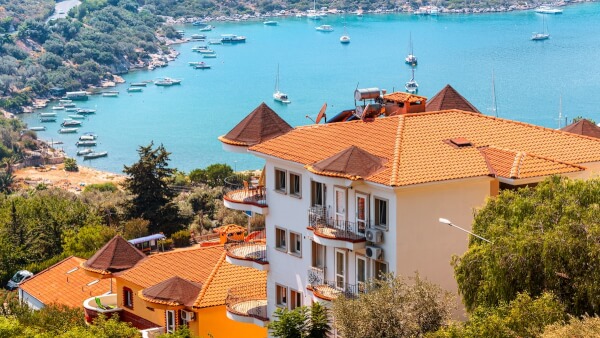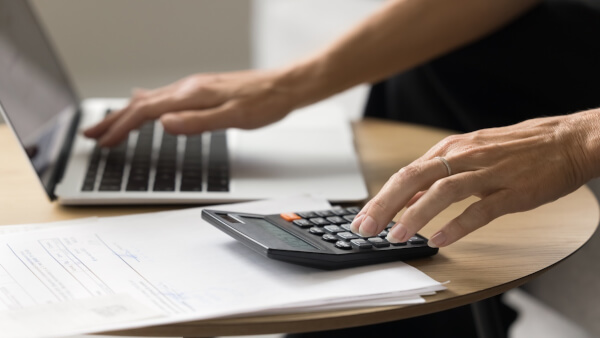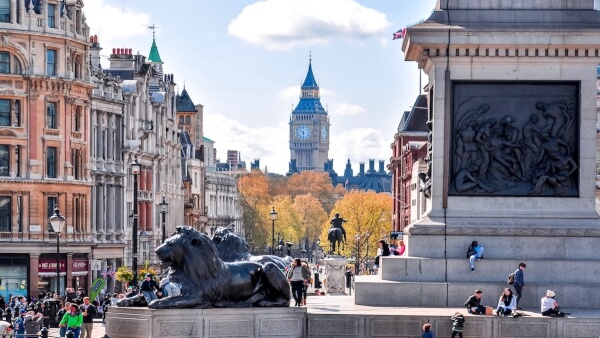How to get mortgage for overseas property as an American
Learn all about different ways to get an overseas property mortgage as an American and gain unique insights to prepare yourself for the whole process.

Buying an investment property in Singapore gives Americans an opportunity to diversify their real estate portfolio and tap into one of Asia's most stable economies. But how do you know which property to buy? One of the most important metrics to consider is the rental yield.
Rental yield measures how much annual income your property generates compared to its value. The average Singapore rental yield is 3.29% in 2025.¹
This is modest compared to other markets, but Singapore compensates for it with long-term stability and steady capital appreciation. Here's everything foreign investors need to know about rental yields in Singapore.
| Send money internationally with Wise to 140+ countries and 40+ currencies – all at the fair mid-market exchange rate with low, transparent fees. |
|---|
Rental yield tells you what percentage return you can expect from your property investment through rental income. It's useful for comparing different properties and estimating how much passive income you can make.
There are 2 types of rental yield:
- Gross rental yield calculates your annual rental income, but doesn't account for ownership and management costs
- Net rental yield subtracts all your expenses from the rental income before calculating the percentage
Net rental yield shows your realistic profit margin because it includes property management fees, maintenance, insurance, taxes, and other operating costs.
However, gross rental yield is still useful because it allows you to quickly compare different properties during your search. So, it’s important to look at both.
A few different factors influence your rental yields in Singapore, including:
- Location and neighborhood
- Property type and size
- Current market conditions
- Management and maintenance costs
- Local regulations and taxes
Rental yield is important, but it's not the full picture. If the property you're considering is likely to appreciate significantly over time, it might still be a profitable investment despite low rental yields.
| 💡 Take a look at the more in-depth overview on calculating the rental yield |
|---|
It can be.
Singapore's property market has built a reputation for stability and consistent capital appreciation. However, rental yields tend to be lower than in other major cities around the world.
| In 2025, you can expect an average rental yield of 3.29%.¹ In contrast, the average rental yield in the US is currently 6.68%.² |
|---|
Foreign investors should also think about taxes. Non-residents face a 24% tax rate on rental income, which will eat into your profits.³
At the same time, Singapore's luxury condominium segment is experiencing strong demand from foreign investors.⁴ This demonstrates confidence in Singapore's long-term property prospects, even with relatively modest rental yields.
Singapore divides its property market into 28 districts for classification purposes. Each district includes different neighborhoods. Here are the top 5 districts delivering the highest rental yields in Singapore.
Average rental yield: 4.07%⁵
District 2 sits at the heart of Singapore's central business district, which makes it attractive to working professionals and expats. Properties here benefit from excellent connectivity to major business hubs and consistent rental demand.
Average rental yield: 3.95%⁵
District 25 is one of Singapore's northern residential areas. It attracts families and young professionals.
Woodlands has developed into a self-contained town with shopping centers, schools, and recreational facilities. The area's proximity to Malaysia and lower property prices compared to central districts help generate solid rental yields.
Average rental yield: 3.83%⁵
District 14 covers established residential neighborhoods in the eastern part of Singapore. Playa Lebar is a popular commercial hub with ongoing development projects, and Eunos and Kembangan are areas for more traditional residential living.
This district has a mix of older and newer developments.
Average rental yield: 3.82%⁵
District 7 includes some of Singapore's most popular cultural and heritage areas. Properties in this district appeal to both tourists seeking short-term accommodations and residents who want to live closer to the city center.
Average rental yield: 3.72%⁵
District 22 centers around Jurong, one of Singapore's major industrial and residential hubs.
This area is home to many manufacturing facilities and business parks, so there's consistent demand for rental properties. There are also many shopping malls, schools, and recreational facilities.
The average gross rental yield in Singapore sits at 3.29% in 2025.¹
The highest yields reach just over 4% in popular areas like District 2 (Tanjong Pagar, Chinatown). The lowest yields drop to around 2.67% in District 21 and District 26.⁵
| Most districts fall somewhere between 3% and 4%.⁵ So, anything in that range can be considered a good Singapore rental yield. |
|---|
These rental yields might seem low compared to other property markets around the world, but Singapore makes up for it with steady capital appreciation and minimal market volatility.
In other words, properties here tend to hold their value well over time.
You'll have to pay income taxes on your rental income from Singapore properties, regardless of whether you're a Singapore tax resident or not.³
Singapore uses a progressive tax system for residents, meaning that higher earners pay higher rates. The top personal income tax rate is 24%. Non-resident individuals face a flat 24% tax rate on all income, including rental income.³
You'll also likely have to fill out a US tax return with the IRS. The US taxes its citizens and permanent residents on worldwide income, so you may owe some taxes on your Singapore property.
Singapore has a stable and well-regulated property market with modest rental yields averaging 3.29% in 2025.¹
It can be a good option for Americans who want to diversify their real estate portfolio in a market that's not volatile. However, the 24% tax rate for non-residents will eat into your profits.³
Transferring money from the US to Singapore for property purchases can also be expensive. Banks charge high fees and offer poor exchange rates, which might seem negligible at first, but can cost you thousands of dollars on a large transaction.
It's a good idea to compare your options for sending money abroad.
| With Wise, you can send up to 1,000,000 USD per wire transaction to 140+ countries, with the mid-market exchange rate and low, transparent fees. |
|---|
Sources
*Please see terms of use and product availability for your region or visit Wise fees and pricing for the most up to date pricing and fee information.
This publication is provided for general information purposes and does not constitute legal, tax or other professional advice from Wise Payments Limited or its subsidiaries and its affiliates, and it is not intended as a substitute for obtaining advice from a financial advisor or any other professional.
We make no representations, warranties or guarantees, whether expressed or implied, that the content in the publication is accurate, complete or up to date.

Learn all about different ways to get an overseas property mortgage as an American and gain unique insights to prepare yourself for the whole process.

Get a full overview of the best property management software systems for small landlords to easily track and manage their overseas property.

How to buy your first rental property overseas? Here's a detailed guide that can help you understand the challenges and steps for making an investment.

What are the best property management software systems for managing student housing? Take a look at our list and choose the most suitable option for you.

Are you thinking about making smart property investment decisions and wondering how rental yield is calculated? Have a look at our guide to find out.

What is a good rental yield in the UK for international property investors? Here's a detailed breakdown of different regions and areas within the country.